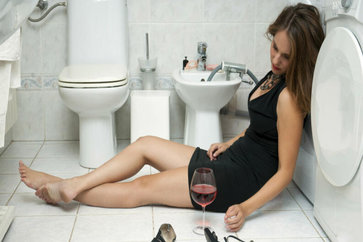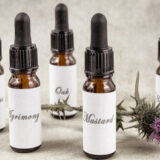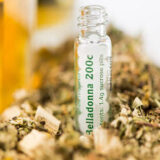What Is Homeopathy And How Does It Work?
Homeopathy is a type of alternative or complementary medicine to treat all kinds of common diseases and ailments. We will know the basics of homeopathy, what it is for, how to find a good homeopath, and expert opinions about it.
A homeopathy is a form of alternative medicine that uses very low concentrations of organic substances similar to creating symptoms of the disease. That is, unlike allopathic medicine, which uses drugs that eliminate symptoms.
Homeopathy uses substances similar to those that create the symptoms to stimulate the body’s defenses and that it is he who carries out the healing.
Homeopathy was born 200 years ago by Dr. Samuel Hahnemann, drawing on the Law of Similars, he observed that administering low doses of a “similar” to the disease, substance managed to cure sick people in a much more Respectful with the organism and less aggressive.
What kind of disease does homeopathy treat?
According to the homeopathic experts, Homeopathic Medicine can be used in various diseases the most effective are:
- Otolaryngology and bronchial
- Digestive
- Circulatory
- Osteoarticular
- Trauma
- Urological and gynecological
- Dermatological
- Neurological
- Ophthalmological
- Psychiatric
- Pediatric
- Endocrinology
- Immune system
- Palliative treatments
Some things you should know about homeopathy
- Homeopathy treats all kinds of diseases, acute, infectious, emotional, psychological chronic, etc.
- Homeopathy advocates a holistic or global view of health, taking into account the specific circumstances of each individual, their integration into nature, and the internal particular balance of each energy.
- It is considered a benign, non-aggressive, moderate, and respectful medical practice with the individual and his body.
- The active substances or principles used by homeopathy to cure are obtained with the dilution in water or alcohol of what is known as “mother tincture” and has an animal, vegetable, or mineral origin.
- The more diluted the active ingredient is, the more potent it is.
- Homeopathy is indicated in all individuals, regardless of age, gender, or specific circumstances.
- Homeopathy is supported by numerous testimonials and empirical applications, but not by the scientific method.
How does homeopathy work?
To understand how homeopathy works it is necessary to know that there are different ways to approach a disease :
1. Allopathic method: This method uses substances or active principles different or contrary to those that generate the symptoms of a disease, for example, to lower fever using an antipyretic substance or for inflammation, an anti-inflammatory substance.
2. Homeopathic method: This method defends the premise that the like cures the like so that a substance that produces the symptoms of a disease in a healthy individual can cure a sick person when the doses are very low. The higher the dilution, the greater the power, that is, the more diluted the “similar” substance is, the more potent its effect on the organism.
What are CHs in homeopathy?
When we buy a homeopathic medicine, we note that along with the name of the active ingredient there is the acronym CH (Centesimal de Hahnemann) next to a number, for example, 9CH or 30CH.
The number indicates the times that the substance has been diluted, so, according to the foundations of homeopathy, the higher the number, the greater the dilution and, therefore, the more potent its effects.
In this sense, it also differs markedly from allopathic medicine, which states that the greater the dose of the active ingredient, the greater effect it has on the organism. However, homeopathy establishes just the opposite, that is, that the lower the dose, the greater the effect.
How are dilutions made in homeopathy?
To obtain a homeopathic medicine, starts, from a mother tincture, which undergoes two processes:
- Deconcentration process: The mother tincture is diluted in water or alcohol.
- Dynamization process: Once the substance is diluted in water, the result is subjected to a vigorous agitation process in which, according to homeopathy, the active principles of the substance pass into the water.
These two processes are repeated successively until the necessary dose or dilution is obtained. After many dilutions, there are hardly any molecules of the mother substance left.
But it is that, according to Hahnemann and the principles of homeopathy, it is not this substance that heals, but its healing power passes into the water through what homeopaths call the “memory effect” of water.
What factors does homeopathy take into account?
The homeopathy, as we have seen, working-level health global or holistic, taking into account two fundamental factors:
- The characteristic symptoms of the disease: Every disease presents a picture of symptoms that are proper to it and that allow a diagnosis to be made.
- The particular symptoms of the sick person: In addition to the characteristic symptoms of the disease, homeopathy also takes into account the specific reaction of the sick person to the illness, that is, the way in which the patient becomes ill, It is unique and different in each person.
Tips to choose your homeopath
Of course, we all favor personal involvement when it comes to curing any type of disease or illness so if you are going to choose homeopathy as a treatment method, it is advised that you report to doctors everything you can about illness.
However, the most advisable thing is that, regardless of knowing the method in depth, choose your homeopath well. For which some points are advised:
- Do not give up if you do not hit the first one. If you are not convinced by the person you have chosen, keep looking until you find the most appropriate one.
- Try to choose someone who gives you security and confidence, who knows how to listen to you, guide you, and dedicate the time and attention you need.
- A good consultation of homeopathy may take at least one hour or an hour and a half the first time since it is necessary that you make a broad questionnaire about your illness, your symptoms, your lifestyle, your habits or even your emotional state or the way that you have to assume the vagaries of life.
Homeopathy and science
Although more and more conventional medicine advocates homeopathy and specializes in this alternative therapy, homeopathy is considered by the scientific community as a pseudoscience, since clinical studies have not been able to show scientific evidence about its effects.
This does not mean that it has been proven that it has no effects, but that it has not been shown to have them. Given this, the homeopathic community ensures that the scientific methodology.
Is not adjusted to the specific needs and particularities of homeopathy, since this method addresses unique cases and not parameterizable problems that can be investigated scientifically.
The scientific community says that the principles of homeopathy are in conflict with the established knowledge of physics, chemistry, and biology, but also a century ago.
Quantum physics dismantled the chiringuito of conventional physics by questioning everything that until then was believed about the world and reality.
Homeopathy around the world
Homeopathy is nowadays used in many countries as an alternative or complementary medicine. In fact, there are specialists who prescribe more and more frequently homeopathic medicines and numerous pharmacies dispense this form of treatment in an alternative or complementary way. We offer you some interesting facts about it:
- A report from the European Parliament Commission ensures that 3 out of 4 Europeans know about homeopathy and that 29% turn to it in their health care.
- In France, the practice of homeopathy is widespread, although only doctors can practice it, as in Belgium.
In Spain, it is recognized as a “medical act” to regulate its practice, although it is not necessary for the homeopath to be a doctor. - In Britain, there are four homeopathic hospitals in the National Health System.
- A study published in the British Medical Journal in 1994 already confirmed the increasing tendency of patients who resort to alternative therapies as a method of healing, showing the percentages of people who have used it between the years 85-92 and who are: 56 % in Belgium, 28% Denmark, 32% France, 31% Holland.
























